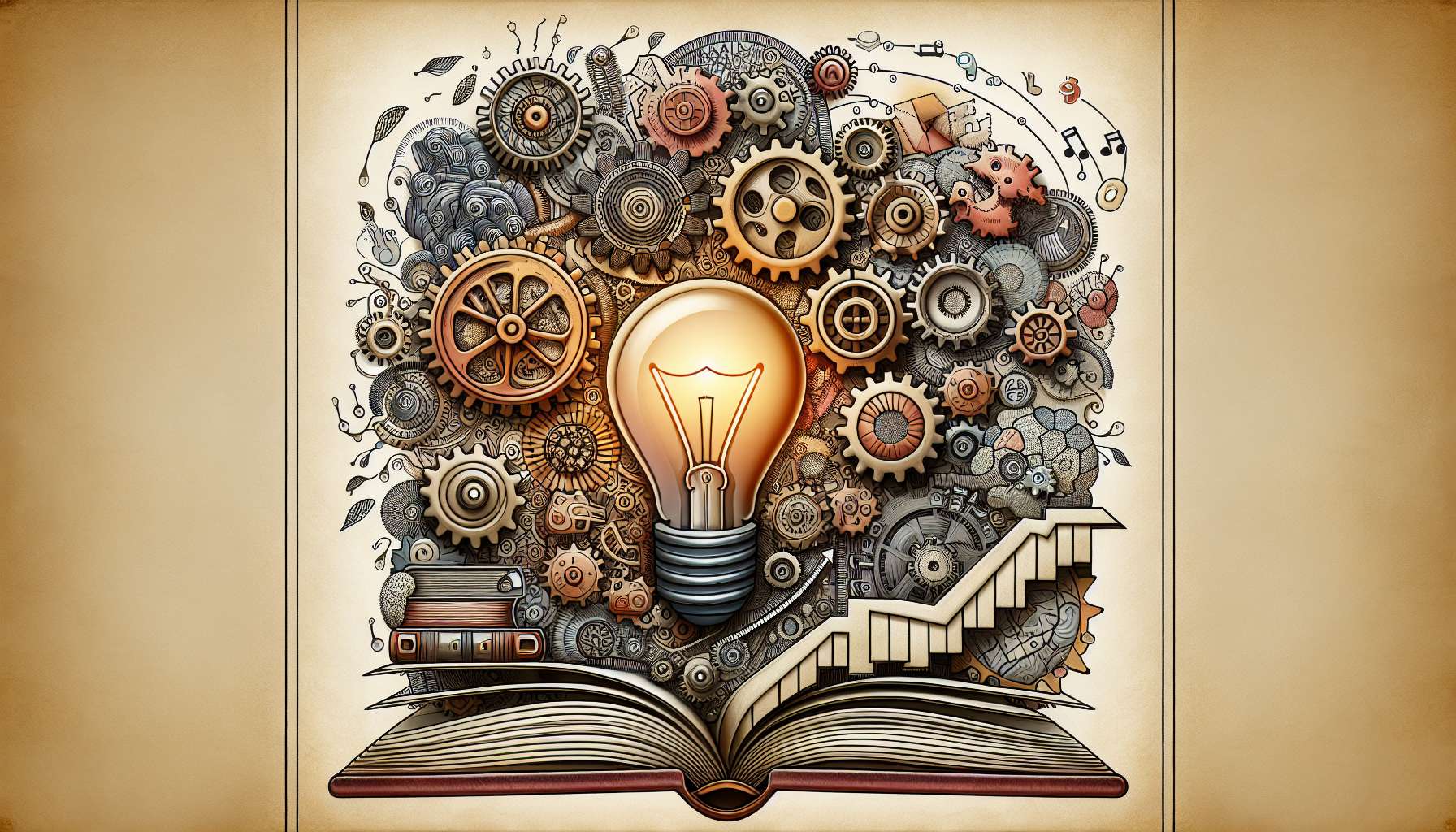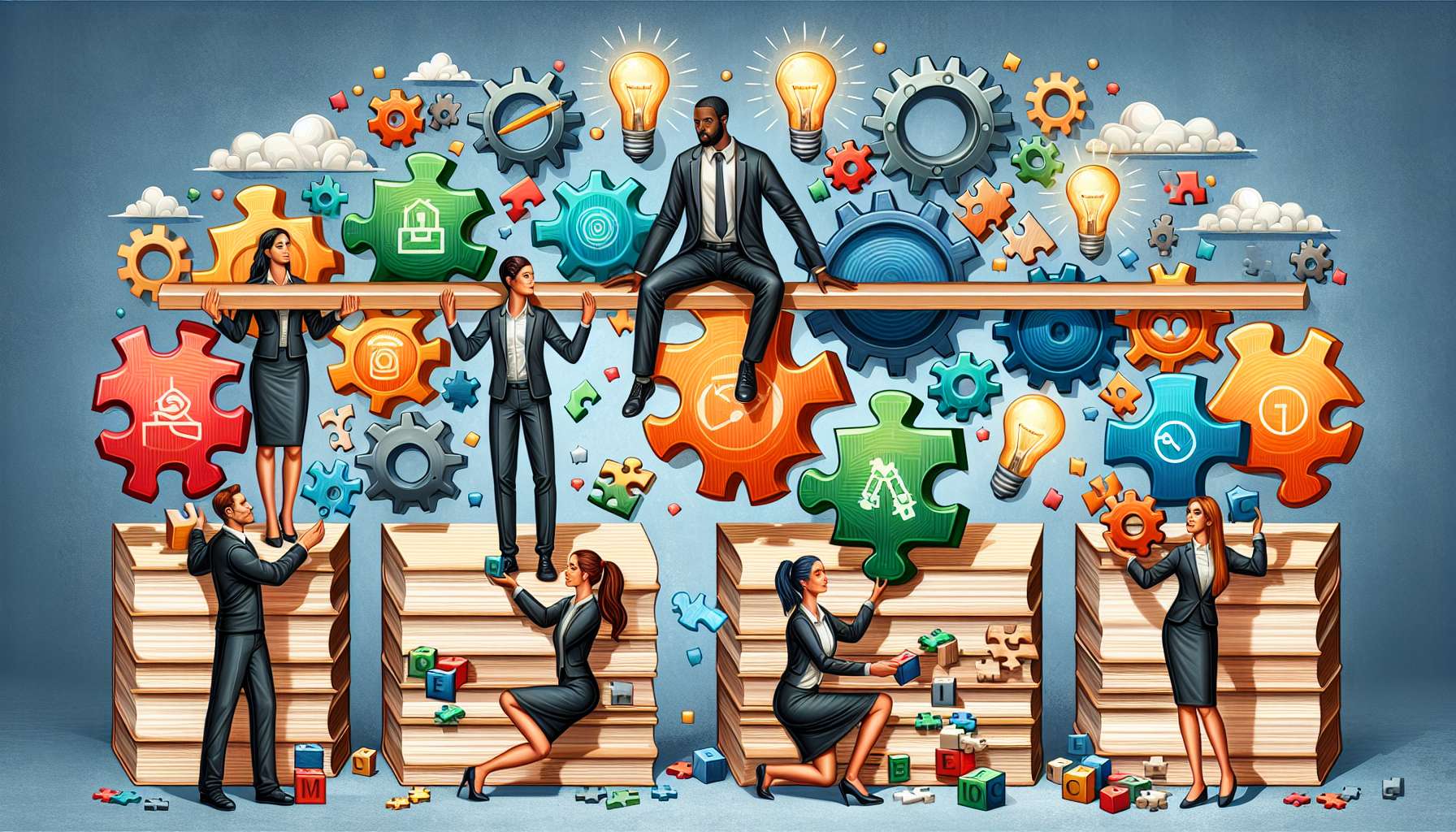Unlocking the Secrets of Key Learning Elements
Education is a lifelong journey that involves acquiring knowledge, skills, and experiences to grow and develop as individuals. At the core of this process are key learning elements that shape how we absorb, process, and apply information. In this comprehensive guide, we will delve into the intricacies of these essential components of learning, exploring their significance, applications, and impact on personal and professional growth. Join us as we unravel the mysteries of key learning elements and uncover the secrets to unlocking your full potential.
The Fundamentals of Learning
Before we can dive deep into key learning elements, it’s crucial to understand the fundamentals of learning itself. Learning is a complex process that involves cognitive, emotional, and social aspects, working together to create new knowledge and skills. From the early stages of childhood development to lifelong learning in adulthood, our ability to learn shapes our understanding of the world and ourselves.
Key learning elements are the building blocks of this process, providing the framework for how we engage with new information, make connections, and apply what we’ve learned. By exploring these essential elements, we can enhance our learning experiences, overcome challenges, and reach our full potential.
The Role of Memory in Learning
Memory plays a crucial role in the learning process, allowing us to store and retrieve information for future use. There are different types of memory, including short-term memory, long-term memory, and working memory, each serving a unique function in how we learn and retain knowledge.
Short-term memory helps us hold onto information temporarily, while long-term memory stores memories for extended periods. Working memory, on the other hand, enables us to manipulate and process information in real-time, facilitating problem-solving and critical thinking skills.
Understanding how memory functions and how to optimize memory retention can significantly impact our learning outcomes. By employing memory strategies such as spaced repetition, chunking, and mnemonic devices, we can improve our ability to recall information and enhance our learning capacity.

The Importance of Attention and Focus
Attention and focus are essential components of effective learning, allowing us to concentrate on tasks, ignore distractions, and engage fully with the material at hand. In today’s fast-paced world filled with digital distractions and information overload, maintaining focus can be challenging but crucial for successful learning.
By practicing mindfulness, setting clear goals, and creating a conducive learning environment, we can improve our attention span and enhance our ability to concentrate. Cultivating a growth mindset and adopting a positive attitude towards learning can also boost motivation and engagement, leading to better learning outcomes.
Research has shown that sustained attention and deep focus are key factors in long-term memory formation and overall academic performance. By honing our attentional skills and developing strategies to stay focused, we can maximize our learning potential and achieve academic success.
The Role of Metacognition in Learning
Metacognition, or thinking about thinking, is an essential component of self-regulated learning that involves monitoring, evaluating, and adjusting one’s cognitive processes. By reflecting on our learning strategies, identifying strengths and weaknesses, and setting goals for improvement, we can enhance our metacognitive skills and become more effective learners.
Metacognition allows us to take control of our learning process, manage our time and resources efficiently, and adapt to different learning situations. By developing metacognitive awareness and implementing metacognitive strategies such as self-questioning, self-explanation, and goal setting, we can optimize our learning experiences and achieve better results.
Research has shown that students who possess strong metacognitive skills tend to perform better academically, exhibit higher levels of motivation and engagement, and demonstrate greater self-efficacy. By cultivating metacognition through practice and reflection, we can become more autonomous and successful learners.
The Power of Feedback in Learning
Feedback is a critical component of the learning process, providing valuable information about our performance, progress, and areas for improvement. Effective feedback helps us identify strengths and weaknesses, set goals for growth, and monitor our learning outcomes over time.
Constructive feedback, whether from teachers, peers, or self-assessment, can enhance our learning experiences, deepen our understanding of the material, and foster a growth mindset. By seeking feedback proactively, reflecting on the input received, and incorporating it into our learning practice, we can accelerate our learning and development.
Research has shown that timely and specific feedback can lead to significant learning gains, increase motivation and engagement, and improve overall academic performance. By leveraging the power of feedback as a tool for growth and improvement, we can maximize our learning potential and achieve our goals.
The Role of Motivation in Learning
Motivation plays a crucial role in the learning process, driving our efforts, persistence, and engagement with the material. There are different types of motivation, including intrinsic motivation, extrinsic motivation, and self-determination, each influencing how we approach learning tasks and goals.
Intrinsic motivation stems from internal factors such as curiosity, interest, and personal satisfaction, while extrinsic motivation is driven by external rewards or consequences. Self-determination theory posits that autonomy, competence, and relatedness are essential for fostering intrinsic motivation and sustainable learning habits.
By understanding the factors that influence motivation and cultivating a growth mindset, we can enhance our learning experiences and achieve long-term success. Setting meaningful goals, celebrating small wins, and seeking support from peers and mentors can also boost motivation and foster a positive learning environment.

Expert Opinions
According to Dr. John Hattie, an education researcher and author of Visible Learning, “Key learning elements are the essential components that drive student achievement and learning outcomes. By focusing on memory, attention, metacognition, feedback, and motivation, educators can create optimal learning environments that support student growth and development.”
Dr. Carol Dweck, a psychologist and author of Mindset: The New Psychology of Success, emphasizes the importance of a growth mindset in learning. She states, “The way we think about our abilities and intelligence can significantly impact our learning outcomes. By adopting a growth mindset and believing in our potential to learn and grow, we can overcome challenges, embrace feedback, and achieve our goals.”
Common Misconceptions
One common misconception about key learning elements is that they are fixed traits that cannot be developed or improved. In reality, memory, attention, metacognition, feedback, and motivation are dynamic skills that can be cultivated through practice, reflection, and deliberate effort.
Another misconception is that motivation is solely driven by external rewards or punishments. While extrinsic motivation can influence behavior in the short term, intrinsic motivation rooted in personal values and interests is more sustainable and conducive to long-term learning success.
Comparative Analysis
Comparing different approaches to learning and teaching can shed light on the effectiveness of key learning elements in various educational contexts. Traditional instructional methods focused on rote memorization and passive learning may not fully leverage the power of memory, attention, metacognition, feedback, and motivation to enhance student engagement and achievement.
On the other hand, student-centered pedagogies that emphasize active learning, collaborative problem-solving, and personalized feedback can create more dynamic and interactive learning environments that foster critical thinking, creativity, and self-directed learning. By incorporating key learning elements into curriculum design and instructional practices, educators can optimize student learning experiences and promote academic success.
Conclusion
To wrap things up, key learning elements are the essential components that shape how we learn, think, and grow as individuals. By understanding the role of memory, attention, metacognition, feedback, and motivation in the learning process, we can optimize our learning experiences, overcome challenges, and achieve our full potential.
By cultivating these key learning elements through practice, reflection, and intentional effort, we can enhance our cognitive abilities, deepen our understanding of the material, and improve our academic performance. Remember, learning is a lifelong journey, and by embracing the power of key learning elements, we can unlock new opportunities for growth, development, and success.




